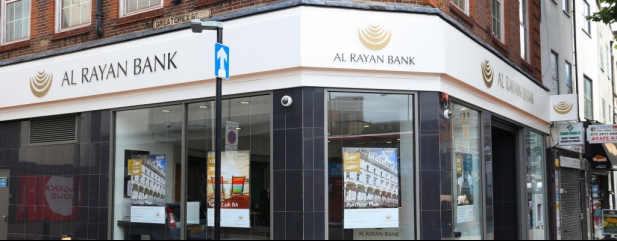Archived article
Please note that tax, investment, pension and ISA rules can change and the information and any views contained in this article may now be inaccurate.
Cash rates are improving: this is what you need to know

Unless you have been living in a particularly well-fortified and soundproof bunker, you will have noticed that UK interest rates are rising quite rapidly, as the Bank of England does its level best to combat spiralling inflation.
While that’s not good news for anyone with high levels of borrowing, including mortgage debt, there is a silver lining for cash savers, who are now seeing significantly higher interest rates on offer.
The rising tide of interest rates is not lifting all boats to the same extent though, and savers usually need to look beyond high street banks and building societies to find the best offers.
The table shows a selection of typical instant access savings accounts from the high street compared to the best currently available on the market, according to Moneyfacts.
You may be able to get more from the high street banks if you fulfil certain conditions in terms of being a premium customer, or making limited withdrawals or regular deposits, but generally speaking, the standard flexible accounts offered by these providers are not very competitive.
As well as return on their capital, savers are wary of return of their capital, which is why many of them probably stick with well-known high street names. That’s understandable, but in fact, provided the bank account you choose is covered by the Financial Services Compensation Scheme – also known as the FSCS – you will receive up to £85,000 of your money back, even in the unlikely event that your bank goes bust and your money is lost. However, holding more than this with one bank clearly comes with some risk attached.
It’s important to note the FSCS treats all banks sharing the same banking license as one entity, and therefore only eligible for one £85,000 compensation payment per customer as a maximum. For instance, HSBC and First Direct are treated as one entity, because they are part of the same banking group, even though they operate under separate brands.
HIGHER RATES IF YOU LOCK UP FOR LONGER
Another puzzler for savers to chew over is whether they may want to lock up some of their money for a set period in fixed-term bond accounts, to get a better interest rate.
In theory, while interest rates are rising this shouldn’t be such a good idea, but one-year bond rates are now looking relatively attractive and seem to have already priced in some of the interest rate hikes to come.
According to Moneyfacts, the best one-year fixed bond account is currently offering a rate of 3.35%, compared to a top rate of 2.1% for instant access savings. That looks like a reasonable trade for locking up at least some of your money for 12 months.
You currently don’t get a huge amount more interest for locking away for longer. The best rate on both a three-year fix and a five-year fix is 3.6%, and there is a greater risk that interest rates rise further over these longer time periods, which you would miss out on if your money is tied up.
CASH SUPERMARKETS
Given the huge shift we’re seeing in interest rate policy, all this is liable to frequent change, so savers would do well to keep an occasional eye on the savings market.
They might find a useful way to do this is to use one of the new cash supermarkets, such as Raisin or the AJ Bell Cash Savings Hub. These cash marketplaces have competitive accounts available from lots of different banks, making it easier to compare providers, and switch between them, which can be done within the cash supermarket account.
WATCH OUT FOR TAX
One nasty little shock which savers might once again find themselves experiencing is paying tax on their cash interest.
In some ways, this is a nice problem to have, because for many years interest rates have been so low that for most people, the annual tax-free savings allowance has more than covered the income they’ve received from cash in the bank.
That tax-free allowance is £1,000 of interest for basic rate taxpayers, £500 for higher rate taxpayers, and zero for additional rate taxpayers.
As interest rates rise, savers might well find themselves breaching these limits, especially those with larger cash piles. A cash ISA can help here, because all interest from these accounts is tax-free. However, the rates on offer are often a bit lower than non-ISA accounts, so savers might need to indulge in a bit of maths to calculate if they’re better off saving in a cash ISA or not.
While interest rates are heading in the right direction for savers, it’s entirely fair to point out that against a backdrop of double-digit inflation, your money is still going backwards in real terms.
One way to deal with this is to invest money you might not need in the next five to 10 years, or longer, in the market. In the short term the stock market can be extremely capricious, but it’s surprisingly reliable over longer time periods, and one of the best ways to guard your money against the ravages of inflation.
DISCLAIMER: AJ Bell owns Shares magazine. Editor Daniel Coatsworth owns shares in AJ Bell
Important information:
These articles are provided by Shares magazine which is published by AJ Bell Media, a part of AJ Bell. Shares is not written by AJ Bell.
Shares is provided for your general information and use and is not a personal recommendation to invest. It is not intended to be relied upon by you in making or not making any investment decisions. The investments referred to in these articles will not be suitable for all investors. If in doubt please seek appropriate independent financial advice.
Investors acting on the information in these articles do so at their own risk and AJ Bell Media and its staff do not accept liability for losses suffered by investors as a result of their investment decisions.

 magazine
magazine








